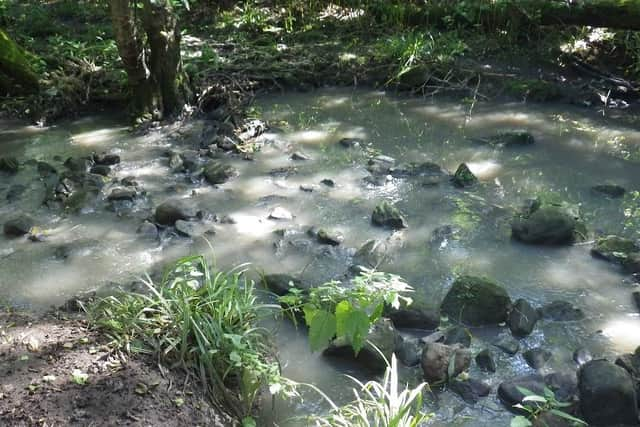Yorkshire Water hit with record £1m penalty after sewage spill killed 1,500 fish
The Environment Agency said the company was hit with the sanction after it breached the terms of its environmental permit and polluted Hookstone Beck.
An investigation found Yorkshire Water had discharged sewage from a combined sewer overflow in Hookstone Road in August 2016 and polluted water along a 2.5km stretch.
Advertisement
Hide AdAdvertisement
Hide AdThere were more spills over the following months, even though Yorkshire Water is only allowed to discharge into that stream when the nearby storm sewage facility is full following periods of heavy rain or snow.


The company has apologised and said the spills happened after a plank of wood became lodged in the sewer and caused a blockage, which was not flagged by faulty telemetry equipment.
It was hit with a civil sanction, known as an Enforcement Undertaking, and ordered to pay £500,000 to Yorkshire Wildlife Trust and £500,000 to Yorkshire Dales Rivers Trust. It has also spent £1.85m on upgrading the sewer network in the area.
Water Minister Robbie Moore said the “record penalty” shows that “those who damage our natural environment will be held to account”.
Advertisement
Hide AdAdvertisement
Hide AdClaire Barrow, Environment Agency Area Environment Manager in Yorkshire, said the £1m donation “will be invested back into the local area to enhance the environment for people and wildlife”.
Yorkshire Wildlife Trust said it will use the money to build homes for wildlife, mainly on their wetland reserves. It has plans to reprofile Ripon City Wetlands to create muddy shores for wading birds and safe breeding islands.
Yorkshire Dales Rivers Trust said it will use its payment to make a series of improvements along the River Nidd.
A Yorkshire Water spokesman said: “This incident was initially caused by a plank of wood that shouldn’t have been in the sewer network and took place seven years ago.
Advertisement
Hide AdAdvertisement
Hide Ad“We acted quickly to stop the pollution but understand incidents of this kind are distressing and when things go wrong, we understand we have a responsibility to make it right and to prevent these things from happening at all.
“Unfortunately, it has taken seven years to reach an agreement with the Environment Agency to donate funds to local wildlife charities that will directly benefit Yorkshire, but we are pleased to have finally provided funds to the Yorkshire Wildlife Trust and Yorkshire Dales Rivers Trust.
“We’re committed to protecting the environment and our procedures and processes have evolved significantly since 2016, contributing to a halving of pollution incidents in the last five years.
"Following this incident in 2016, we spent almost £2m to improve the sewer network in the area to prevent repeat issues.”
Advertisement
Hide AdAdvertisement
Hide AdFigures released by the Environment Agency show the number of discharges from storm overflows in Yorkshire dropped by 22 per cent, from 70,062 to 54,273, between 2021 and 2022.
The amount of time sewage was allowed to spill into Yorkshire’s waterways fell by 43 per cent, from 406,131 hours to 232,054 hours.
But Chief Executive Nicola Shaw said last year’s drought had a significant impact, as there are fewer discharges when there is less pressure on the sewage system during spells of dry weather.